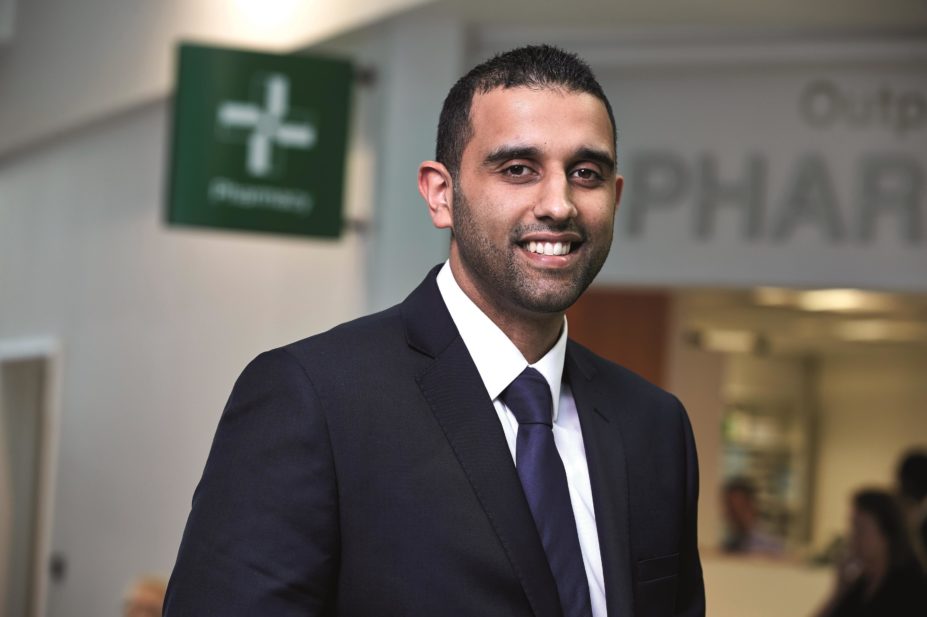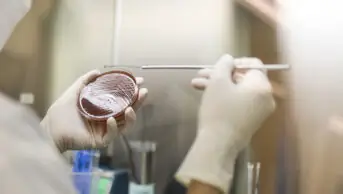
Ed Moss
Harpal Dhillon is an antimicrobial pharmacist who has worked across many sectors of the NHS and on antimicrobial stewardship in the UK and internationally. In September 2015, he was elected chair of the Royal Pharmaceutical Society (RPS) Antimicrobial Expert Advisory Group, which has recently been working to promote World Antibiotic Awareness Week and the Antibiotic Guardian campaign.
What is the role of the RPS Antimicrobial Expert Advisory Group?
There is currently a lot of political focus on antimicrobial resistance and stewardship, and the role of our group is to ensure that international and national policies lead to further support for our current surveillance and stewardship practices. This will be achieved by the group members providing a source of expertise on antimicrobial stewardship, resistance, infection prevention and management and related issues that impact on the pharmacy profession and the public.
The group serves as a consultative group to the boards of the RPS, acting as a source of expertise and advice and providing evidence-based thought to inform RPS policy decisions and advice to the government and other organisations.
The Antimicrobial Expert Advisory Group also works closely with the RPS Hospital Expert Advisory Group and the RPS Pharmaceutical Science Expert Advisory Panel, providing expertise and advice on antimicrobial matters and ensuring the work of the groups is aligned.
Who makes up the group?
The group consists of nationally and internationally recognised experts in antimicrobials who have a high level of involvement in institutional roles and professional organisations, covering NHS, Public Health England (PHE), academia and the pharmaceutical industry.
What are you currently focusing on?
As the group has only recently been formed, we have focused our immediate attentions on promoting World Antibiotic Awareness Week by making sure we promote the Antibiotic Guardian campaign – an initiative developed by PHE to urge members of the public and healthcare professionals to enact a pledge about how they will make better use of antibiotics. We are also focusing on distilling the message from the National Institute for Health and Care Excellence (NICE) antimicrobial stewardship guidance produced recently while contributing to international workstreams focusing on driving reinvestment in research and development and responsible antibiotic use.
How does your previous work in the NHS feed into your role as chair of the group?
While completing my PhD I set myself the unconventional career target of working across all sectors of the NHS within specialist antimicrobial positions. I wanted to understand first hand the issues faced and opportunities available regarding antimicrobial stewardship. The achievement I am most proud of is a project managing the TARGET — Treat Antibiotics Responsibly, Guidance, Education, Tools — resource and hearing how it has helped to optimise antibiotic prescribing in certain areas of the country. I hope these experiences bring unique expertise to the group and allow me to relate to all members and the challenges they face.
How can we improve the public understanding of antibiotic resistance?
There are a number of resources and campaigns that aim to engage the public and improve their understanding of antibiotic resistance, and we just have to persevere with our current national strategies and build on the momentum. Ultimately, the best way to educate the public is at those moments when they present to a pharmacist, doctor or nurse with an illness they believe to be an infection.
The Antibiotic Guardian campaign has been a great way to engage with the public and we all have an important role to highlight the importance of being antibiotic guardians. Two other resources that are really helpful are e-bug and TARGET. E-bug provides resources to educate junior and senior school children about issues such as antibiotic resistance, hand hygiene and antibiotic stewardship, with the hope of changing the future culture towards antibiotics and infection control. TARGET provides resources for GPs and pharmacists working in primary care, with the aim of increasing awareness and providing resources they can use to educate their patients about appropriate antibiotic use.
There should be more focus on developing primary care antimicrobial pharmacy roles and a supporting education programme to continue their development
How do you think pharmacists’ skills could be better used in the battle against inappropriate antibiotic prescribing?
In terms of antibiotic prescribing, around 75% occurs in primary care compared with around 18% in hospital settings. But when you look at the number of antimicrobial pharmacists we have in hospitals compared with how many we have in primary care there is a huge difference. There should be more focus on developing primary care antimicrobial pharmacy roles and a supporting education programme to continue their development. The benefit of educating patients and prescribers within primary care settings is that we can reduce admissions of patients into hospitals.
Are there any areas you think community pharmacists could focus on to reduce antibiotic use?
Pharmacists administering flu vaccines is a huge step forward and can play a really important role in reducing antibiotic use. It also provides another opportunity for pharmacists to demonstrate our ability to provide a valued service to patients, as well as educating patients on how best to treat their common ailments and counselling on how to use their prescribed antibiotics appropriately.


